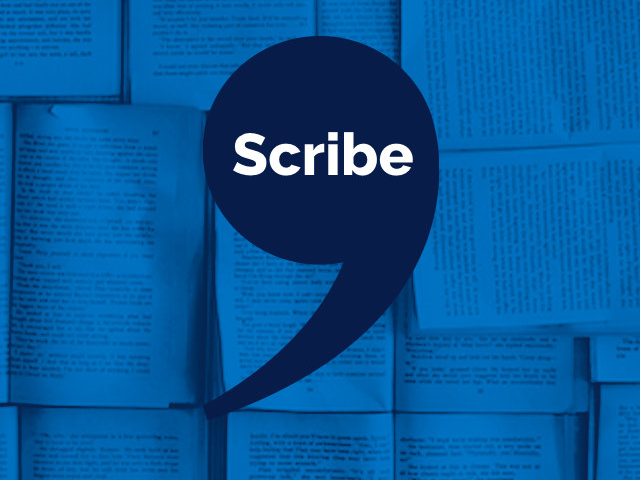“The story might sing in your head, and you clearly understand all the characters’ motivations, the plot points, etc. But are you communicating that to your reader?”
-Stephanie Noll
Stephanie Noll is teaching a class for the Writers’ League of Texas called “How to Workshop Your Writing.” This class will teach students the fundamentals of the writing workshop, including giving/receiving feedback. This class also satisfies the requirement to participate in our Advanced Craft Workshop.
 Scribe: For some, the idea of receiving feedback on their work can be daunting; what words of advice would you give to someone attending a workshop for the first time?
Scribe: For some, the idea of receiving feedback on their work can be daunting; what words of advice would you give to someone attending a workshop for the first time?
Stephanie Noll: Sharing our work makes us incredibly vulnerable. Before sharing a piece, you’ve spent hours in solitude, clicking away at a keyboard, at times deciding you’re a genius and then (sometimes within the same hour) feeling certain that you are the worst writer who ever lived. Still, you aren’t writing a diary; you’re writing with the hope that some day your work will reach a wider audience, and you need trusted readers to consider your draft and help you find ways to make it better.
During workshop, it’s best to stay quiet and take notes while others discuss your work. If possible, separate yourself from the piece (easier said than done, I know), and imagine it as an entity that isn’t connected to you, your self-worth, or even your talent as a writer. Finally, I would suggest listening to those comments that speak to your own feelings about the piece. For example, if you’ve wondered if a line comes up as cliché and someone mentions that line as problematic, then your instincts were right and it’s time to cut it. You can’t take everyone’s feedback and apply it to your work, so listen for what resonates with your own sense of the piece.
Scribe: Writers are generally encouraged to reach out for feedback in many different ways; what might be more beneficial about a workshop with strangers or acquaintances who are also writers, instead of relying on feedback from friends or family?
SN: Your friends and family want what’s best for you—or not, right? Family members may be looking for themselves reflected in your work; a friend might be hypercritical or too generous, depending. And when we share with friends and family, we might be looking for validation that has nothing to do with the work. Soliciting feedback from fellow writers is best because they are doing the same kind of “butt in chair” work that you are. This is not to say every writer will be a good reader for you and your work, but writers will understand what it took for you to get the piece where it is, and they are the ones who will be better equipped to help you see what it can be.
Scribe: Is it possible to attend a workshop too early or too late in the writing process? How do writers know their work is ready for the workshop phase?
SN: A writer should put up work that is as done as they can get it. It’s frustrating to readers to have someone submit a piece to workshop that is clearly in really rough form. At the very least, the writer should line edit the piece for typos and glaring errors. When I put up work in workshop, I like to think that I am one or two revisions away from submitting to journals (if it’s a shorter piece) or agents (for a booklength manuscript.) A writer should go into their workshop with some clear concerns or questions they have about the piece so they can take in what others say and apply it as makes sense, given their own vision.
Scribe: Are there any common mistakes or misconceptions that writers face when attending a workshop for the first time?
SN: I think the biggest mistake a writer might make is to get defensive about the work. The story might sing in your head, and you clearly understand all the characters’ motivations, the plot points, etc. But are you communicating that to your reader? Sometimes we can fall into this place where we’re like, “they just don’t get my work,” but we should be asking ourselves, “how have I not communicated my vision?”
Finally, I think we need to see workshop as a part of the writing process. We don’t sit down, write a piece, and declare it “done.” We sit, we write, we workshop, we revise, and sometimes we workshop after a revision. It’s not easy work, but part of what makes it so worthwhile is to find readers who will work alongside you on your journey.
—
Thanks, Stephanie!
Click here to register for Stephanie’s class.
Click here for our current class schedule.
About the Instructor
Stephanie Noll taught the Advanced Craft Workshop in Fall 2016. She studied fiction writing at Texas State University, where she earned her MFA. She is a frequent storyteller at The Story Department, a monthly fundraiser for the non-profit Austin Bat Cave, and has also told stories at Listen to Your Mother, Backyard Story Night, Hyde Park Story Night, and the Tellers. Stephanie has 18 years of teaching experience and works as a senior lecturer in the English department at Texas State where she recently was awarded an Excellence in Teaching award. Stephanie is the director of Old Books for New Teachers, an organization that helps first-year teachers build classroom libraries. She has written a novel about a standardized test cheating scandal at an inner-city Houston high school.









